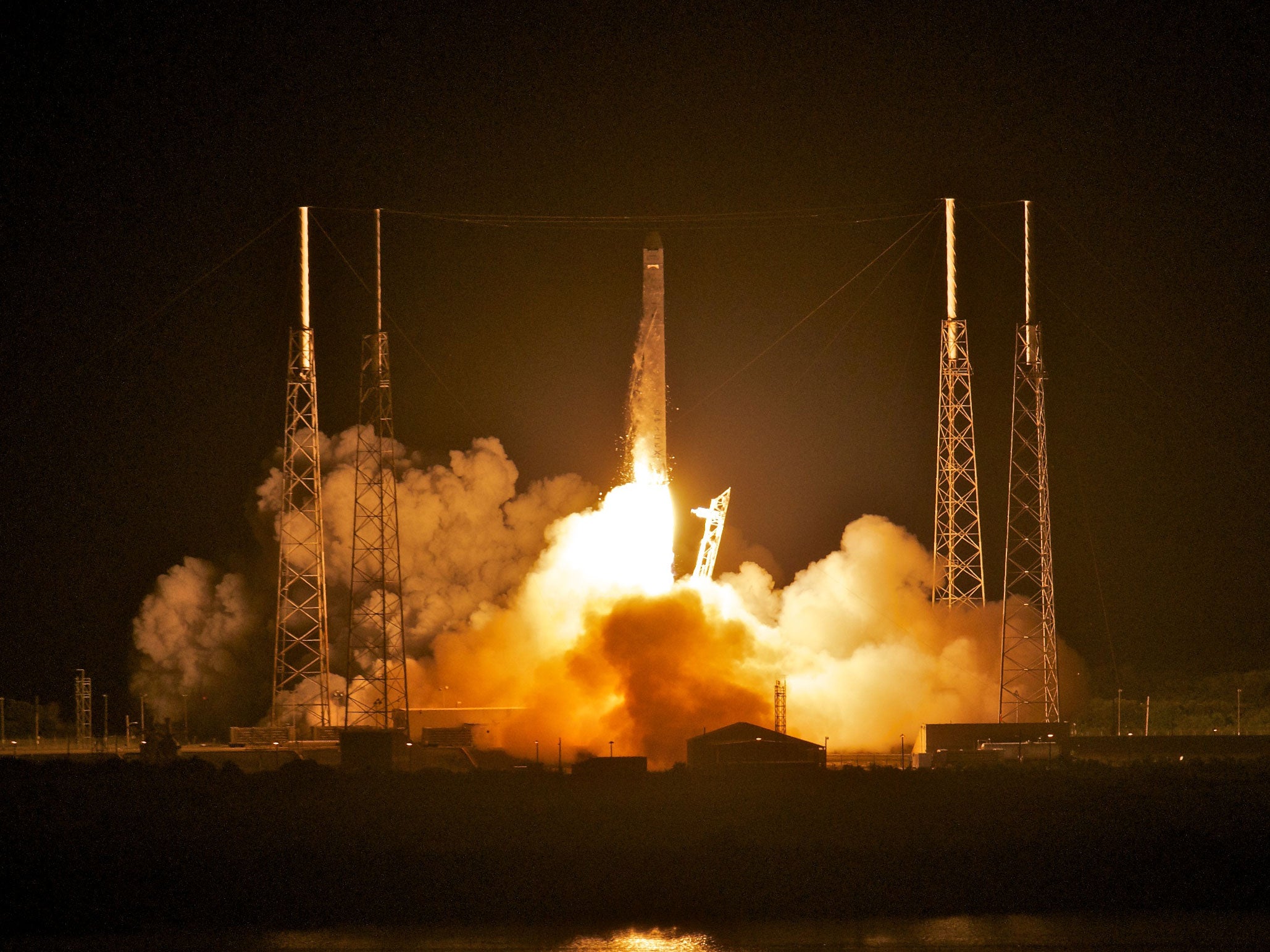SpaceX Falcon 9 launch delayed by 24 hours for maintenance
SpaceX will attempt to vertically land the rocket at sea, although they're not expecting to pull it off

SpaceX's Falcon 9 rocket is set to take off on Thursday evening, after a maintenance delay postponed the launch by 24 hours.
Now, the mission is scheduled to start at 6:46PM ET (11:46PM GMT) on Thursday 25 February, in a launch which will be livestreamed on SpaceX's website.
The launch was still set to go ahead up to two hours before the delay, with the company writing on Twitter that the weather was "still 60 per cent go." They added that they were tracking thick clouds and wind, which threatened to knock the spacecraft off course.
However, the launch wasn't delayed because of the weather, but so the Falcon 9's liquid oxygen propellant could have a little more time to cool down.
Posting an update on its website, SpaceX said: "Out of an abundance of caution, the team opted to hold launch for today to ensure liquid oxygen temperatures are as cold as possible in an effort to maximise performance of the vehicle."
They also reassured the public that the rocket and spacecraft are still "healthy."
The rocket's main mission this time is to deliver a 5,200kg communications satellite into orbit, which is designed to improve mobile coverage and high-speed internet access to remote areas in India and south-east Asia.
However, the real test will come when the rocket returns to Earth. SpaceX is hoping it'll be able to land the booster vertically on an unmanned landing ship.
In three previous attempts, SpaceX has never managed to make a landing at sea, although it's come close. SpaceX isn't holding out much hope for this landing either, writing in a mission overview that due to the rocket's unique mission, "a successful landing is not expected."
Landing a SpaceX rocket booster gently and safely back on Earth has long been one of SpaceX's goals, since it could significantly cut the cost of space travel. It's successfully landed a Falcon 9 booster on land, but an ocean landing is the next milestone.
Subscribe to Independent Premium to bookmark this article
Want to bookmark your favourite articles and stories to read or reference later? Start your Independent Premium subscription today.

Join our commenting forum
Join thought-provoking conversations, follow other Independent readers and see their replies